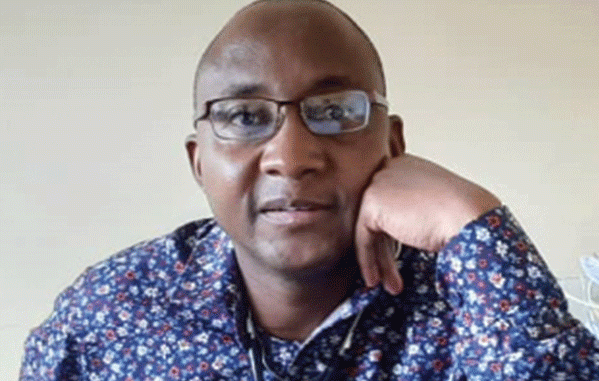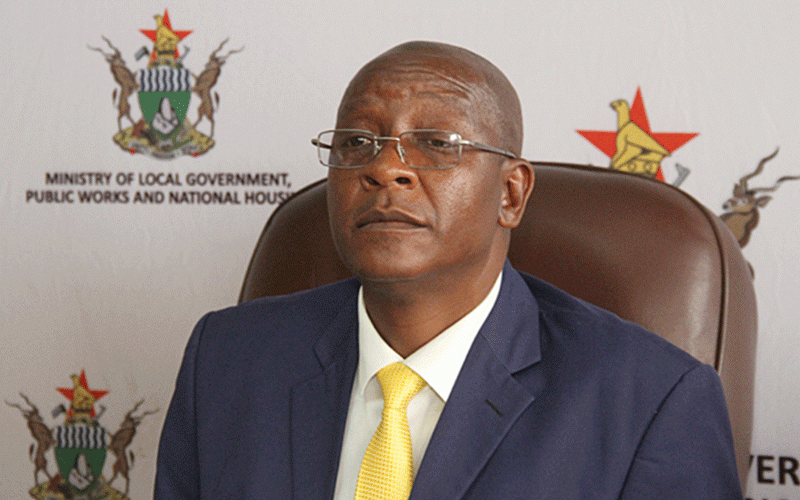
Johannes Marisa LAST WEEK was epochal for the medical fraternity as President Emmerson Mnangagwa laid the foundation of the Great Zimbabwe School of Medicine and Health Sciences.
It will become one of the few growing institutions in the country. The University of Rhodesia School of Medicine opened its doors in 1963 and was affiliated to the University of Birmingharm. The National University of Science and Technology (Nust) opened a medical school in 2005 but had to temporarily shut its doors in 2007. Hundreds of medical practitioners have been trained at university.
Midlands State University was to follow in 2016 with its first intake of medical students being enrolled that year. This is tremendous and a step in the right direction for the nation.
The country, however, is losing special skills as workers migrate to greener pastures. While we boast a lot about training health workforce, we are very big losers at the end because of brain drain.
Our days at University saw us receiving pay-outs from government. Government incurred a lot of costs on students and I am sure the amount went beyond millions of dollars. Now with four universities teaching medicine, it means the costs are higher today, save for the fact that nowadays students pay levies directly to universities. In essence, government would spend such big amounts on students with the hope that one day, they would bring the much-needed skills to the economy. Nurses are trained at schools of nursing dotted around Zimbabwe. Student nurses are paid for the duration of the training.
The main problem today is not the training of medical students at all these universities around Zimbabwe. What Zimbabwe requires is special skills retention so that we stem brain drain which is threatening to tear medical practice apart.
When Mnangagwa laid the foundation stone at Great Zimbabwe University School of Medicine and Health Sciences, he expressed optimism that by 2030, our country would have achieved universal health coverage.
This is very noble but with the rate at which we are losing medical personnel to countries like United Kingdom, New Zealand, Australia, United States of America, this may be a pipe dream.
- Chamisa under fire over US$120K donation
- Mavhunga puts DeMbare into Chibuku quarterfinals
- Pension funds bet on Cabora Bassa oilfields
- Councils defy govt fire tender directive
Keep Reading
Government should move with speed to address the mass exodus of medical staff from our beautiful country. I always state that being home is the best but these people who are deserting their domestic duties for foreign countries have no option because of pathetic working conditions and poor remuneration.
The issue of brain drain should thus be solved once and for all. Ironically, many of the demands of the health workforce are very genuine and these include a reasonable salary, car loans, duty-free facilities, stands or land which I am sure government can provide with ease.
The public health system in Zimbabwe has been bedevilled by incessant strikes and demonstrations emanating from the same grievances. These are now known as chronic problems that dog the sector from January to December each year. So many attempts have been made to stem the massive brain drain but some of the strategies have naturally fizzled out and the cycle continues.
The rate at which nurses are leaving Zimbabwe today is alarming and if something is not done urgently to correct the situation, I foresee the departure of special area nurses like intensive care nurses, theatre nurses, midwives, which will culminate in poor health service delivery for the nation.
Government, through the inter-ministerial committee, identified some of the causes of brain drain.
The unavailability of non-monetary incentives, shortage of accommodation, transport quagmire, absence of vehicle loans, cafeteria, lack of WiFi were some of the identified causes of lack of motivation among the health personnel. For sure, salaries are very low if comparison is done with colleagues in the region. Salaries ought to be competitive if we are to retain the few remaining staff.
The private medical practitioners have stood tall to ensure a healthy nation. At least everyone put their maximum effort in order to torpedo the deadly COVID-19. Africa would have been decimated by the coronavirus but the astute health workforce worked diligently to save as many people as possible.
While we would want to see training of more medical personnel, we should realise that it may be a waste of State resources if we cannot retain them. Government should work to retain health staff so that the country has adequate human capital. In view of the unprecedented mass exodus of this critical skill, it is, therefore, worthwhile to consider some of the following:
- Since the causes of brain drain have been identified by our own inter-ministerial committee, there should not be any delays in the implementation of the recommendations that are aimed at stemming it. Government should not delay to give car loans or other incentives to medical staff or duty-free facilities for some of the requested items. This would help motivate the health workforce, a move towards skills retention.
- Corruption should be averted forever. Many people are angry that while they are suffering, the elite is abusing millions of dollars. Even in public hospitals, there are stories of flouted tender procedures, fuel and vehicle abuse, drug scandals which further demotivate the already disgruntled staff.
- Private-public partnerships are of great importance as they can result in improved infrastructure especially in public clinics and hospitals. It should not be mere talk but action should see our health delivery service getting better by the day. The country can get massive assistance from private practitioners who have stood firm despite insurmountable challenges.
- Leadership renewal should be routinely done if we are serious about stemming brain drain. The level of vindictiveness and ill-treatment of junior staff at health institutions is alarming. Some matrons, district medical and nursing officers, provincial officers terrorise junior staff. It is high time the Health ministry investigated cases of abuse of offices at hospitals.
Johannes Marisa is president of the Medical and Dental Private Practitioners Association of Zimbabwe. He writes here in his personal capacity.











